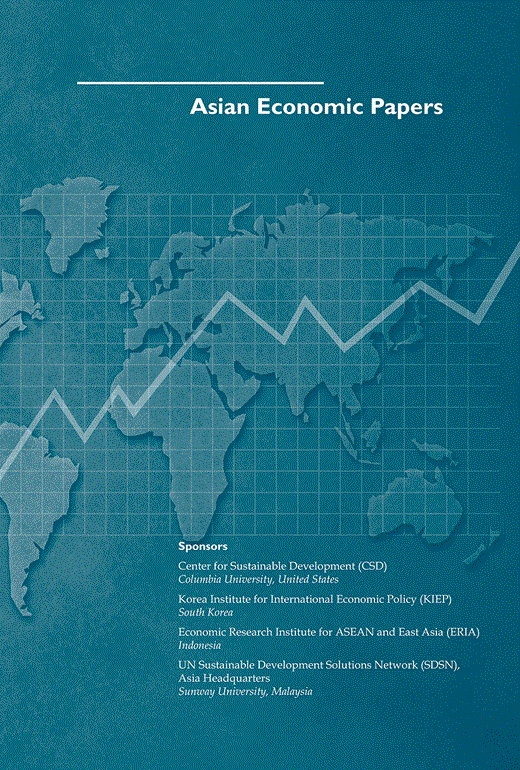国际生产网络正在克服新冠肺炎冲击:来自日本机械贸易的证据*
IF 5.3
3区 经济学
Q1 ECONOMICS
引用次数: 4
摘要
摘要本文通过揭示负供应冲击、负需求冲击和正需求冲击,研究了新冠肺炎对机械行业国际生产网络的影响。具体而言,我们使用日本机械贸易的最细分水平,研究了2020年新冠肺炎期间贸易总额期间的贸易变化,并将其分解为两个密集利润(即数量效应和价格效应)和两个广泛利润(即进入效应和退出效应)。我们的实证结果表明,即使在新冠肺炎期间,零部件贸易关系仍然强劲,机械行业的国际生产网络几乎完好无损。他们还表明,除了负面供应冲击和负面需求冲击外,新冠肺炎还对具有特殊需求的特定产品带来了积极的需求冲击,这在一定程度上解释了不同行业之间以及同一行业产品之间的异质性影响。截至2020年10月,日本的机械贸易似乎已基本恢复。本文章由计算机程序翻译,如有差异,请以英文原文为准。
International Production Networks Are Overcoming COVID-19 Shocks: Evidence from Japan's Machinery Trade*
Abstract This paper investigates the impacts of COVID-19 on international production networks in machinery sectors by shedding light on negative supply shocks, negative demand shocks, and positive demand shocks. Specifically, we examined changes in trade in the trade-fall periods amid COVID-19 in 2020 using Japan's machinery trade at the most disaggregated level and decomposed them into two intensive margins (i.e., the quantity effect and the price effect) and two extensive margins (i.e., the entry effect and the exit effect). Our empirical results show that trade relationships for parts and components were robust even amid COVID-19 and that international production networks in machinery sectors were almost intact. They also demonstrate that COVID-19 brought positive demand shocks for specific products with special demand due to its nature in addition to negative supply shocks and negative demand shocks, which partially explains heterogeneous effects not only among sectors but also among products in the same sector. As of October 2020, Japan's machinery trade seems to have mostly recovered.
求助全文
通过发布文献求助,成功后即可免费获取论文全文。
去求助
来源期刊

Asian Economic Papers
ECONOMICS-
CiteScore
7.50
自引率
0.00%
发文量
16
期刊介绍:
The journal Asian Economic Papers (AEP) is supported by several prominent institutions, including the Center for Sustainable Development at Columbia University in the United States. This shows that there is a strong emphasis on sustainable development within the journal's scope. Additionally, the Korea Institute for International Economic Policy in South Korea, the UN Sustainable Development Solutions Network (SDSN) in Malaysia, and the Economic Research Institute for ASEAN and East Asia in Indonesia also sponsor AEP. The articles published in AEP focus on conducting thorough and rigorous analyses of significant economic issues pertaining to specific Asian economies or the broader Asian region. The aim is to gain a deeper understanding of these issues and provide innovative solutions. By offering creative solutions to economic challenges, AEP contributes to the discourse and policymaking that impact the Asian economies and region as a whole.
 求助内容:
求助内容: 应助结果提醒方式:
应助结果提醒方式:


